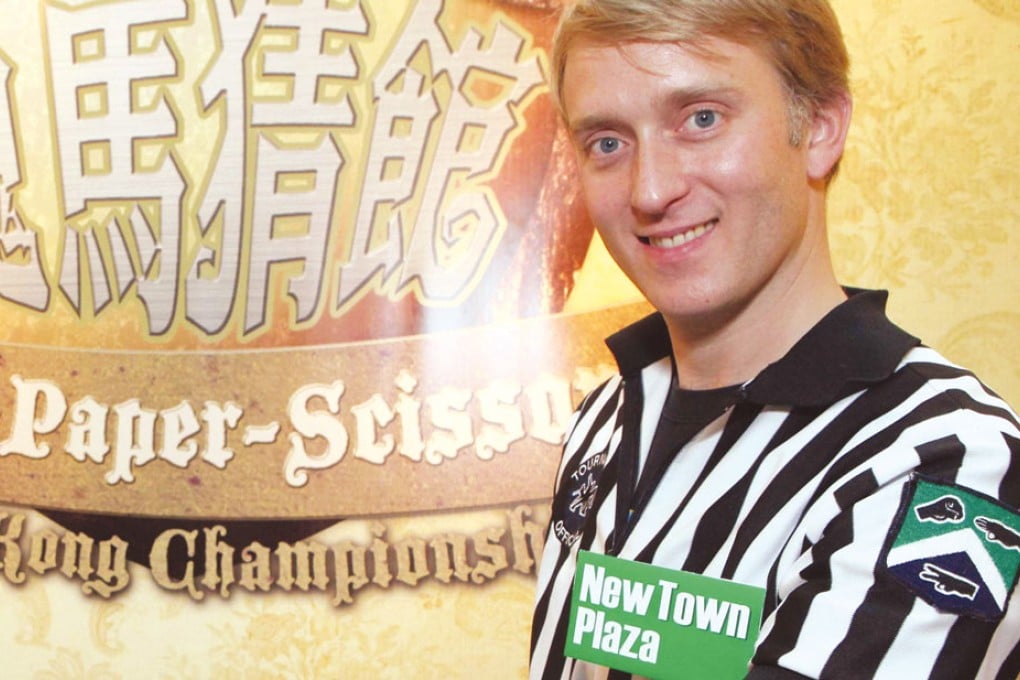Douglas Walker
Rock Paper Scissors (RPS) can be a profession. Meet Douglas Walker, the Managing Director of the World RPS Society, who is in town to promote the first Hong Kong tournament of the World RPS Championships. He talks to Stephen Ho about the tricks of the game.

HK Magazine: How did you get into Rock Paper Scissors?
Douglas Walker: I was about five years old when I learned the game from my brother, but for most of my childhood I didn’t take it anymore seriously than anyone else. It was probably just after I graduated from university that I started getting interested in it from a strategic perspective.
HK: Do you know where RPS comes from?
DW: There’s little historical evidence left behind, since it’s only played with hands. The best we know is that the game comes from sometime in the 19th century in Japan. But 2,000 years ago in Egypt there was a very similar game. So who knows, probably some time between those two.
HK: What’s so great about using RPS to solve disputes?
DW: There are some decisions that need to be made through logic, and there are some that are just so close that a logical argument could go on forever. So it’s useful to just use RPS to resolve them. But big fights will still be fights. It’s best not to use it when there’s a lot of money involved.
HK: How much skill is involved in RPS?
DW: Well, it’s like poker. You might not know what you’re doing and still win one hand. But over the long haul, if you’re playing for an entire night, you won’t do well unless you know what you’re doing. You need to know the right signals, the right plays, and your opponent’s bluffs and tells.
HK: Right, so there are tells in RPS.
DW: Absolutely, some of the common ones are, if someone’s going to repeat a throw, they tend to maintain their stance; and if they’re going to change up their throw, they often readjust their stance or adjust their shoulders. Also, some players talk about “rock jaw,” where people often clench their jaw before throwing a rock, because the rock is kind of the aggressive thing, it’s kind of like the punch. The trash talking is also a very big part of it.
HK: There’s a lot of game theory involved then?
DW: Absolutely, there’s a ton of game theory in it and a lot of mathematicians study RPS. But the psychology is also a big part of it. That’s what I love about RPS— the game is so simple, that in many ways, the game disappears and it just becomes about the competition between two people.
